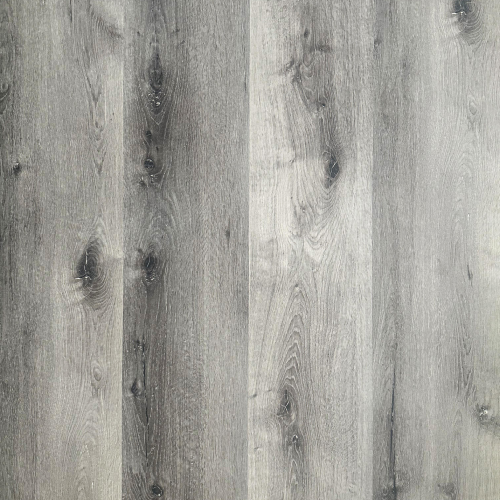
Embarking on the journey of anti-aging skin care isn’t just about reversing time; it’s about nurturing your skin at every stage of life.
Regardless of age, your skin deserves attention and care tailored to its specific needs.
Whether you’re in your vibrant twenties or gracefully stepping into your fifties and beyond, the right skin care strategy can maintain and enhance your skin’s natural beauty.
In this blog post, we’ll unveil five essential anti-aging strategies that are effective for every age group.
From preventative measures to addressing the unique challenges that come with each decade, these tips will help you keep your skin looking youthful and radiant.
Remember, anti-aging skin care is not a one-size-fits-all approach; it’s a personalized journey of self-care and understanding. Let’s explore how you can keep your skin glowing through the years.
Understanding Your Skin Through the Ages
Your skin’s journey is unique and ever-changing. From the softness of youth to the wisdom of maturity, each phase of life brings its own skin care challenges and triumphs.
In your twenties, your skin might be vibrant and resilient, but it’s also the perfect time to start preventative measures against early signs of aging.
As you transition into your thirties and forties, you may notice changes like reduced elasticity or the appearance of fine lines.
This is when your skin demands more targeted care.
Understanding your evolving skin type is crucial. Whether it’s oily, dry, or combination, each type requires a different approach to anti-aging.
It’s not just about combating aging signs; it’s about embracing and caring for your skin at every stage of your life’s beautiful journey.
The Cornerstone of Anti-Aging
The most fundamental, yet often underestimated, element in any anti-aging skin care regimen is sun protection.
It’s a simple truth: the sun is the primary culprit behind skin aging. Ultraviolet (UV) rays can cause not just superficial sunburns but also long-term damage such as wrinkles, fine lines, and an uneven skin tone.
This damage is cumulative, meaning the more you’re exposed without protection, the greater the impact on your skin’s aging process.
No matter your age or skin type, incorporating a broad-spectrum sunscreen into your daily routine is non-negotiable.
Opt for a minimum of SPF 30 and remember, cloudy days don’t mean UV-free days.
Sunscreen should be a constant companion, even when indoors, as UV rays can penetrate windows.
But it’s not just about the product; it’s about application too. Apply generously and reapply every two hours, especially if you’re outdoors.
Don’t forget often-missed spots like the ears, back of the neck, and hands.
Remember, sun protection is not just a summer affair; it’s a year-round commitment to preserving your skin’s youthfulness and health.
Maintaining Skin’s Youthful Plumpness
Hydration is the key to a dewy, youthful complexion, acting as a fundamental pillar in anti-aging skin care.
As we age, our skin’s natural ability to retain moisture diminishes, making it more prone to dryness and the formation of fine lines.
This is where the power of hydration comes into play.
Hydrated skin not only appears plumper and more vibrant but also maintains its elasticity better, slowing down the aging process.
Regardless of your age, incorporating hydrating elements into your skin care regimen is essential.
Look for products containing hyaluronic acid, glycerine, and ceramides, which are powerhouse ingredients known for their moisture-retaining properties.
These ingredients work by drawing moisture into the skin and locking it in, ensuring long-lasting hydration.
But external hydration isn’t enough; internal hydration is equally important.
Drinking plenty of water and maintaining a balanced diet rich in water-containing fruits and vegetables can significantly contribute to your skin’s hydration levels.
This internal-external approach ensures that your skin remains supple and youthful, combatting the natural aging process from all fronts.
Choosing the Right Ones for Your Age
Navigating the world of active ingredients in anti-aging skin care can be a daunting task.
However, understanding which ingredients are beneficial for your skin at different stages of life can make a significant difference.
In your twenties and thirties, prevention is key.
Ingredients like Vitamin C, a potent antioxidant, can help protect your skin from environmental damage while boosting collagen production.
As you move into your forties and beyond, your skin may require more targeted treatments.
This is where retinoid come into play, renowned for their ability to reduce the appearance of wrinkles and improve skin texture.
Peptides are another class of ingredients that become increasingly important as you age.
They support skin firmness and elasticity, helping to combat the loss of collagen that occurs naturally over time.
For those with sensitive skin, niacin amide offers anti-aging benefits without irritation, improving skin tone and reducing inflammation.
Remember, introducing these active ingredients into your routine should be a gradual process. Pay attention to how your skin reacts and adjust accordingly.
It’s not just about choosing the right ingredients; it’s about using them in a way that aligns with your skin’s current needs and future goals.
Lifestyle Factors That Influence Skin Aging
While topical treatments are essential in anti-aging skin care, they only form part of the equation.
Your lifestyle choices play a significant role in how your skin ages. A balanced diet rich in antioxidants can combat oxidative stress, one of the key contributors to aging.
Foods like berries, nuts, and green leafy vegetables are packed with vitamins and minerals that promote skin health.
Sleep is another critical factor. During sleep, your skin undergoes repair and rejuvenation.
Lack of quality sleep can lead to increased signs of aging and a decreased ability to recover from environmental stressors like sun exposure.
Stress management is also crucial. High stress levels can lead to increased cortisol production, which can break down collagen and elastin, the proteins responsible for keeping your skin firm and elastic.
Incorporating stress-reducing activities like yoga, meditation, or even regular walks can have a positive impact on your skin.
Lastly, consider the role of professional skin treatments. Consulting with a dermatologist or a skin care professional can provide tailored advice and treatments like peels, lasers, or microdermabrasion, which can address specific aging concerns more effectively than over-the-counter products.
In summary, anti-aging skin care is as much about what you do on the outside as it is about taking care of yourself on the inside. Balancing these aspects can lead to healthier, more youthful-looking skin.
Conclusion
Embracing a comprehensive anti-aging skin care regimen is a journey, not a destination.
It’s about understanding that the needs of your skin evolve with time and adapting your approach accordingly.
By integrating a combination of sun protection, hydration, active ingredients, and mindful lifestyle choices, you can effectively preserve and enhance your skin’s natural beauty at any age.
Remember, aging is a natural process, and the goal of anti-aging skin care is not to reverse this process but to age gracefully, keeping your skin healthy and radiant.
Cherish each phase of your life with a skin care routine that celebrates and supports your skin’s journey.





